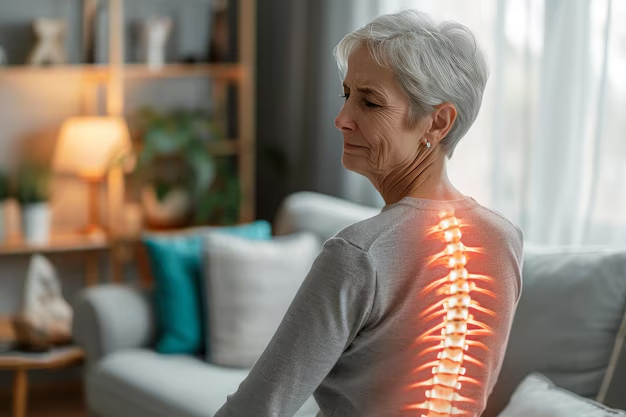Embracing Strong Bones: Your Guide to Overcoming Osteoporosis
Osteoporosis can feel like a stealthy predator, silently weakening bones until a fracture suddenly reveals its presence. Yet, despite its subtlety, osteoporosis is quite common, especially among older adults. While a "cure" might not be a term often used in the context of osteoporosis, there are effective ways to manage, treat, and even reverse its course. If you or a loved one is concerned about bone health, this comprehensive guide offers a roadmap to strengthening your bones and improving overall well-being.
Understanding Osteoporosis and Its Impact
Osteoporosis, derived from Greek meaning “porous bones,” is a condition where decreased bone strength increases the risk of a fracture. It mostly affects postmenopausal women, but men and younger people aren't immune. In osteoporosis, the bones become weak and brittle, so brittle that a fall or even mild stresses like bending over can cause a fracture.
The Silent Thief: Recognizing the Symptoms
Often dubbed the "silent thief," osteoporosis usually progresses without any obvious symptoms. However, some signs that may indicate low bone density include:
- A loss of height over time
- Back pain, which could be a result of a fractured or collapsed vertebra
- A stooped posture
- Fractures that occur much more easily than expected
Recognizing these signs early can lead to more effective management strategies.
Strategies for Managing Osteoporosis
Managing osteoporosis focuses on reducing fracture risk and maintaining bone density. While pharmaceutical interventions are prevalent, numerous lifestyle and dietary choices can significantly impact your bone health.
Nutrition: Building Bones from the Inside Out
Calcium Intake 📊
- Importance: Calcium is a major building block of bone tissue. Adults typically need 1,000 mg per day, increasing to 1,200 mg for women over 50 and men over 70.
- Sources: Dairy products like milk and cheese, leafy green vegetables, and fortified foods.
Vitamin D: ☀️
- Role: Essential for calcium absorption. The sun is a natural source, but depending on your living area and lifestyle, you might require supplements.
- Foods: Fatty fish, egg yolks, and fortified dairy and grains.
Protein and Other Nutrients 🍗
- Whole Sources: Ensure a balanced intake of protein, along with vitamin K and magnesium, which are crucial for bone health.
- Protein Foods: Fish, lean meats, nuts, beans, and tofu.
Exercise: Strengthening Your Skeleton
Regular exercise helps maintain or increase bone density, improve balance, and enhance muscle strength.
Weight-Bearing Exercises 🏃
- Activities: Brisk walking, running, and dancing. They best stimulate bone cells and slow the rate of bone loss.
Resistance Training 🏋️
- Benefits: Increases muscle mass and strengthens bones. Use weights, resistance bands, or body-weight exercises like push-ups and squats.
Balance and Flexibility 🧘
- Practices: Tai Chi and yoga improve balance and coordination, reducing fall risk.
Lifestyle Habits: Protecting Your Bones
Smoking and Alcohol 🚭🍸
- Smoking cessation is crucial since tobacco use weakens bones.
- Limit alcohol consumption as it can interfere with the balance of calcium and bone health.
Fall Prevention 🏠
- Measures: Ensure homes are well-lit, use non-slip rugs, and install grab bars where necessary.
- Footwear: Choose supportive footwear for better stability.
Exploring Medical Options
When lifestyle changes aren't enough, medical treatments might be necessary upon the advice of healthcare professionals.
Medications Addressing Osteoporosis
Bisphosphonates: Most common osteoporosis medications that help prevent bone loss.
Selective Estrogen Receptor Modulators (SERMs): These mimic estrogen's bone-protective effects without some of its risks.
Hormone-Related Therapy: Often considered for those facing significant bone loss during menopause but should be evaluated on a personal risk basis.
Each option has different efficacy, side effects, and suitability depending on individual health status.
Supporting Your Bones Holistically
Beyond direct interventions, a holistic approach considers overall health and wellness.
Stress Management: The Mind-Body Connection
Mindfulness and Relaxation Techniques 🧘♀️
- Techniques like meditation and breathing exercises can reduce stress, which can negatively affect bone health.
Adequate Sleep: 😴
- Sleep is essential for bone growth and maintenance. Aim for 7-9 hours of restful sleep each night.
Community and Support Networks
Connecting with Others 👫
- Sharing experiences with support groups or forums can provide emotional comfort and practical tips.
Education and Advocacy 📚
- Staying informed about osteoporosis and advocating for bone health in your community can make a broader impact.
Taking the Next Steps Toward Stronger Bones
While osteoporosis can change how you think about your health, it doesn't mean you're helpless. By embracing a comprehensive approach, including nutrition, exercise, safe habits, and medical consultation, you can enhance bone strength and improve quality of life. Empower yourself with knowledge and take action today for a healthier, more resilient tomorrow.
Summary: Bone Health Takeaways
- Calcium and Vitamin D: 🚴♂️ Fortify bones with dairy, leafy greens, and sunlight.
- Regular Exercise: 💪 Engage in weight-bearing, resistance, and balance activities.
- Lifestyle Adjustments: 🛋️ Quit smoking, limit alcohol, and make home safety improvements.
- Medical Treatments: 💊 Consult healthcare professionals about medications if necessary.
- Holistic Practices: 🧘 Reduce stress, ensure good sleep, and connect with support networks.
Keep these steps in mind to maintain and enhance your bone health, ensuring a future of freedom and vitality!

Related Articles
- a Nurse Is Caring For a Client Who Has Osteoporosis.
- a Percutaneous Is Performed To Treat Osteoporosis Related Compression Fractures
- Can Alcohol Cause Osteoporosis
- Can I Do Pilates If I Have Osteoporosis
- Can I Reverse Osteoporosis
- Can Men Get Osteoporosis
- Can Osteoporosis Affect Teeth
- Can Osteoporosis Be Cured
- Can Osteoporosis Be Painful
- Can Osteoporosis Be Reversed
